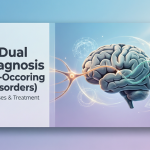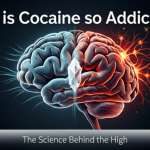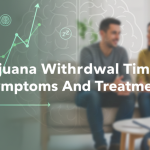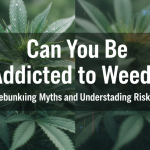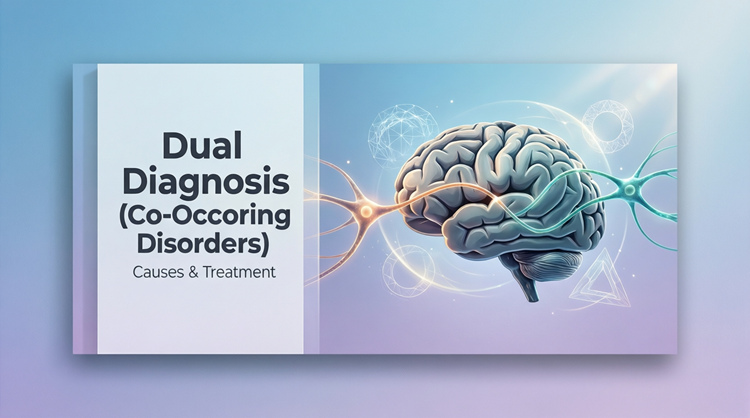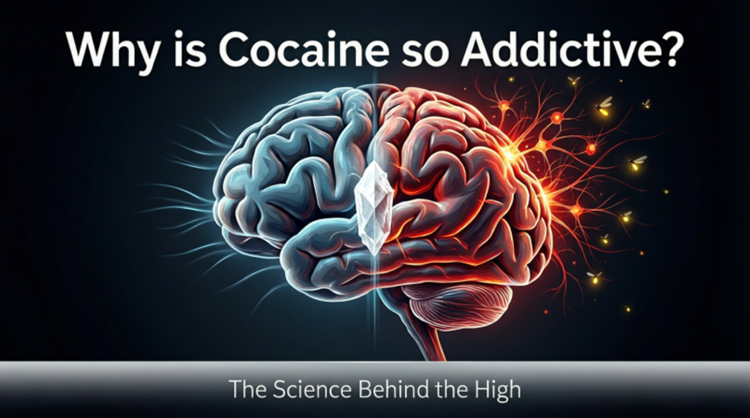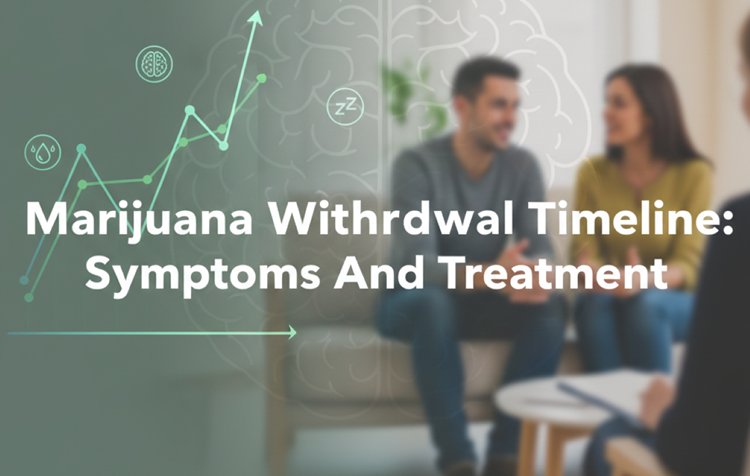Bipolar disorder is a severe mental disorder in which a person experiences mood swings that are on the extremes of the bipolar spectrum. Bipolar disorder is a common mental disorder that doesn’t only affect millions of people globally but it is also not a isn’t a one-size-fits-all diagnosis. There are Bipolar I and Bipolar II disorders; both have different symptoms and problems associated with them. Appreciating these two forms as different forms is very significant in managing and treating the condition.
In this blog, we will focus on the differences between Bipolar I and II to promote awareness of the conditions and seek professional treatment for bipolar disorder.
What is Bipolar Disorder?
Bipolar disorder is a mood disorder characterized by distinct periods of elevated mood and energy, called mania or hypomania, as well as periods of depression. Bipolar disorder is characterized by mood episodes which are known as mania and can last for days, weeks, or even months.
There are two main types of episodes:
- Manic or hypomanic episodes are episodes of mood, energy, and activity markedly above the patient’s customary levels.
- Depressive episodes: Mood ranging from low, to no mood at all, feeling of loss, and no interest in once enjoyable things.
Bipolar I and Bipolar II are both characterized by these mood swings, however, there is a difference in the types and severity of the episodes which define the two.
What is Bipolar I?
The diagnostic criteria for Bipolar I is the presence of at least one Manic Episode. Hypomania is less severe than mania and not as disabling as it can affect a person’s working and interpersonal relationships.
Characteristics of Mania in Bipolar I:
- A mood state that is euphoric or grandiose and has been present for at least one week.
- Over-activity, which results in impulsive actions (for example, overspending).
- Lack of sleep, sometimes not sleeping for days in a row.
- Quick talking and thinking.
- Paranoia is where the person feels like he or she is above everyone else or has superpowers.
- Mental disorder symptoms such as hallucinations and/or delusions (psychosis)
Manic episodes may be so intense that the patient may need to be admitted to a hospital to prevent the patient from harming himself. Depression is also seen with Bipolar I but it is the manic episode that characterizes the disorder.
100% Confidential Support is Available 24/7
No matter what you’re going through, you’re not alone. Our dedicated team is here to provide a safe, judgment-free space where you can talk openly and honestly. Whether you need emotional support, resources, or just someone to listen.
We’re here for you—completely confidential and always respectful of your privacy. Call us today!
What is Bipolar II?
Bipolar II disorder is defined as a clinical course that has at least one hypomanic episode and one major depressive episode. Hypomania is a milder form of mania and even though the patient experiences elation and increased energy, it does not hinder the patient’s functioning as much as in mania.
Characteristics of Hypomania in Bipolar II:
- Persistent feeling of being happy or Elated for at least four days.
- Higher energy and productivity, albeit not necessarily with impaired judgment.
- Less tendency for sleep, but rarely to the point of mania.
- Increased creativity and social competence which is usually described as a state of ‘high functioning’.
- No psychotic symptoms
However, the major depressive episode in Bipolar II can be more severe than in Bipolar I and cause long periods of loss of interest, despair, and incapacity.
Get Help at DeLand Treatment Solutions
It can be tough being a bipolar person, although there’s always a way out. In our clinic at DeLand Treatment Solutions, we provide treatment for mood disorders, including Bipolar I and Bipolar II. Mental health specialists on our team can assist you or your family member find ways to lessen symptoms, understand how to deal with them and increase the quality of life.
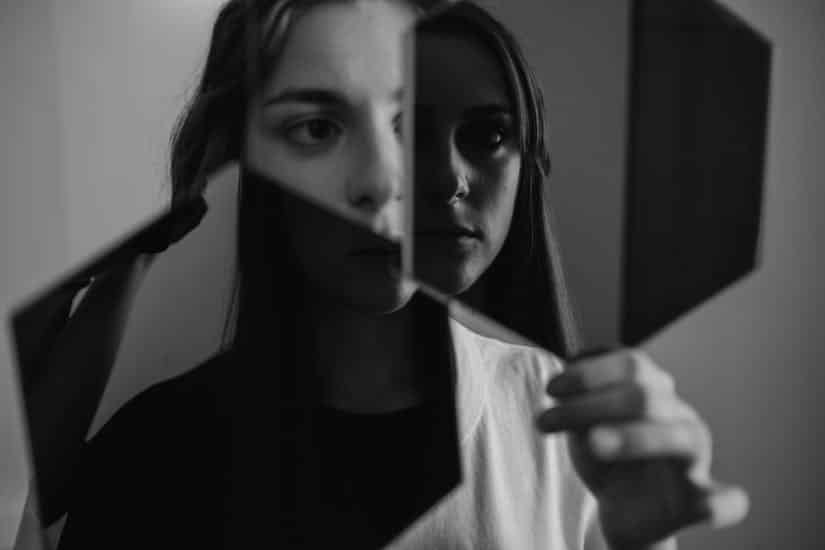
If you have some of the symptoms of bipolar disorder, check out our bipolar treatment program. You can’t allow the highs and lows to become the ultimate rulers of your life; get up and start a new chapter of healing.
Deland Treatment Solutions
Battling with Drug and Alcohol Addition? Remember, you are not alone and we are here to help you!
Key Differences Between Bipolar I and II
Here are the key distinctions between Bipolar I and Bipolar II:
Manic Episodes:
- Bipolar I: It is described by very intense manic episodes, which may require the patient to be hospitalized due to the level of severity and interference with the patient’s ability to function.
- Bipolar II: Includes hypomania, a lighter version of mania that doesn’t often call for a hospital stay and does not interfere as much with daily functioning.
Depressive Episodes:
- Bipolar I: May have depressive episodes but this is not a criterion for diagnosis of the disorder.
- Bipolar II: Major depressive episodes are central to the disorder and necessary for the diagnosis, can be more severe and defined.
Psychotic Symptoms:
- Bipolar I: Psychotic manifestations such as hallucinations or delusions may appear during manic episodes of the disorder.
- Bipolar II: Psychotic features are not observed in the course of hypomanic episodes.
Impact on Functioning:
- Bipolar I: Manic symptoms cause functional disability and may lead to admission to the hospital.
- Bipolar II: Hypomania does not interfere with functioning as much as depression does, but depressive episodes may cause a lot of problems in work or other activities.
Bipolar Disorder Diagnosis and Treatment
To understand bipolar disorder, one has to get a diagnosis from a mental health professional. Bipolar I and II may therefore be easily confused, and this can have serious consequences if the wrong diagnosis and wrong treatment are administered.
- Medication management: This may consist of mood elevators, antipsychotics, and antidepressants (with medical supervision).
- Therapy: CBT and other forms of psychotherapy can be quite useful in reducing symptoms, recognizing potential triggers, and building up the patient’s ability to deal with stressors.
- Lifestyle changes: To avoid mood swings, people should take regular routines, enough sleep, exercise, and manage stress.
Even though the management for both categories of bipolar disorder might be similar, certain measures would be particular to the type that you easily get into mania or depressive states.
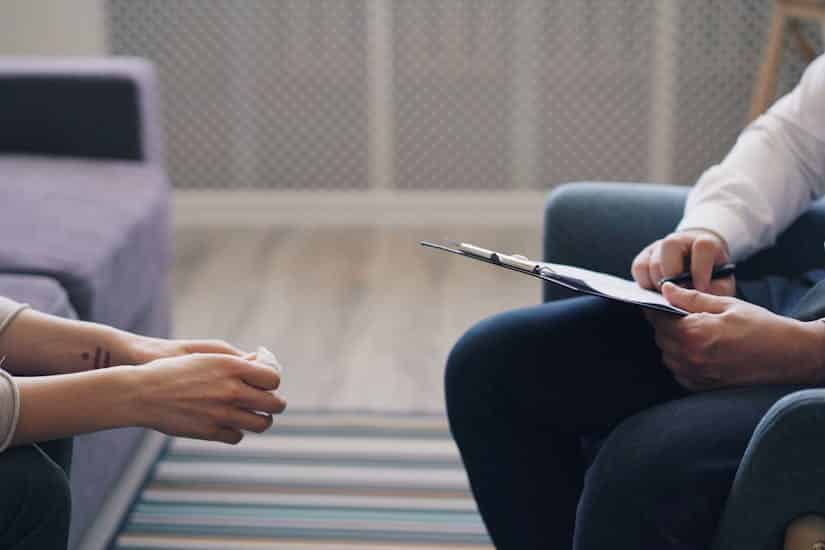
The first step towards the management of Bipolar I and Bipolar II disorders is to identify the signs and symptoms. Each of the conditions can be debilitating however with proper identification and management, people can live a normal, healthy life.
So if you, or someone you know, is going through periods of mood changes or any symptoms of bipolar disorder, contact DeLand Treatment Solutions now to get a comprehensive treatment for bipolar disorder. Our staff is here to lead you to a mentally healthier and stable life.






